Shortly after 11 a.m. on December 16, 2019, Cindy Siegel Shepler drew her last breath in a spartan room in Basel, Switzerland.
The 62-year-old American twisted a knob on her IV pole and soon fell asleep for the last time.
I had stayed with her and her husband David in Knoxville, Tennessee, for their last three nights at home before they left for Basel. And I spoke to her for the last time about 12 hours before she died.
Cindy had been forced to give up a high-powered corporate career at age 35 and struggled for decades with a handful of painful diseases. She spent much of her time seeking new treatments and advocating for medical research, knowing she might never benefit from her labors.
When it finally became clear that no drug could relieve her intense suffering, she chose voluntary assisted death, a procedure that’s not legal in her home state.
Her dying wish was for me to tell her story, with the hope that it would help the cause of all Americans one day having access to this kind of death with dignity.
“I’ve worked so hard as a volunteer,” she told me on her penultimate day. “It has to mean something. And you’re giving me that gift.”
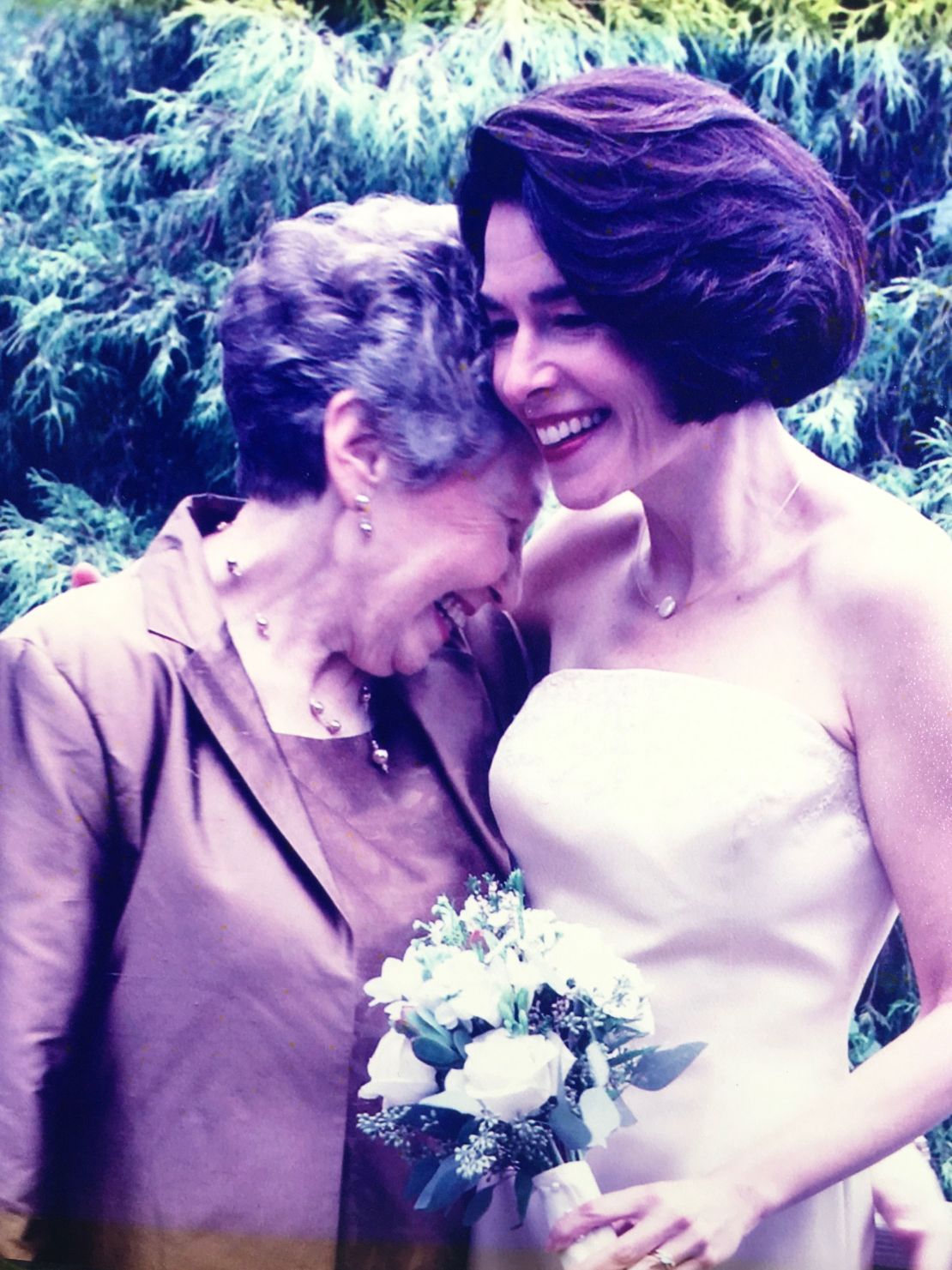
We bonded over a shared desire to help the sick
Ours was an unlikely friendship.
When I knew her she was more than twice my age, married, Jewish, lived in a different state, almost entirely housebound because of her illnesses. I was in my 20s, single, Christian and trying to spend my free time traveling around the world.
But one thing we shared was a diagnosis: myalgic encephalomyelitis/chronic fatigue syndrome (ME/CFS).
After she watched a feature-length documentary I’d directed about the disease, she somehow got my number in early 2017 and cold-called me to procure my help with an advocacy project. “I’m your biggest fan,” she said.
Over the next two and a half years, the fandom became mutual.
She was one of the most uplifting people I’ve ever met, and she poured her spirit into me.
With every piece I wrote for CNN, she would send me messages like, “Ryan, do you realize how incredible this is? This could be your Pulitzer!”
She suffered from many painful illnesses
Two major themes emerged from her life story: She was frequently suffering, but she was also often on the frontiers of social change.
As she grew up in the 1960s in Knoxville, Tennessee, she became one of the first girls in town to have a bat mitzvah. Later she took a gap year in college before it became fashionable, became a vegetarian and walked in the first AIDS Walk in San Francisco in 1987.
Those themes converged in her choice of death, which she thought might prove prescient as well.
“We need to reframe how we all look at death,” she told me. “In 10 years, this will be a no-brainer.”
After graduating summa cum laude from San Francisco State University in 1984, she worked as an account executive for Cigna, a health insurance company. But she was forced to resign in 1993 for health reasons and returned home to Knoxville.
She met the diagnostic standard for a range of diseases affecting the immune system and endocrine system: ME/CFS, fibromyalgia (which causes severe musculoskeletal pain) and Sjögren’s syndrome, a painful immune disorder whose symptoms include dry mouth and dry eyes. She was also diagnosed with Hashimoto’s thryoiditis, which required removing her thyroid gland at age 28. From then on, she needed thyroid medicine in order to live.
In her 50s, she developed a rare genetic condition called Hailey-Hailey disease that caused painful skin blisters across her body. Each condition, a terrible disease unto itself, piled onto the next one.
“Nobody knows how sick I am,” she said. “It often feels like I’m in hell.”
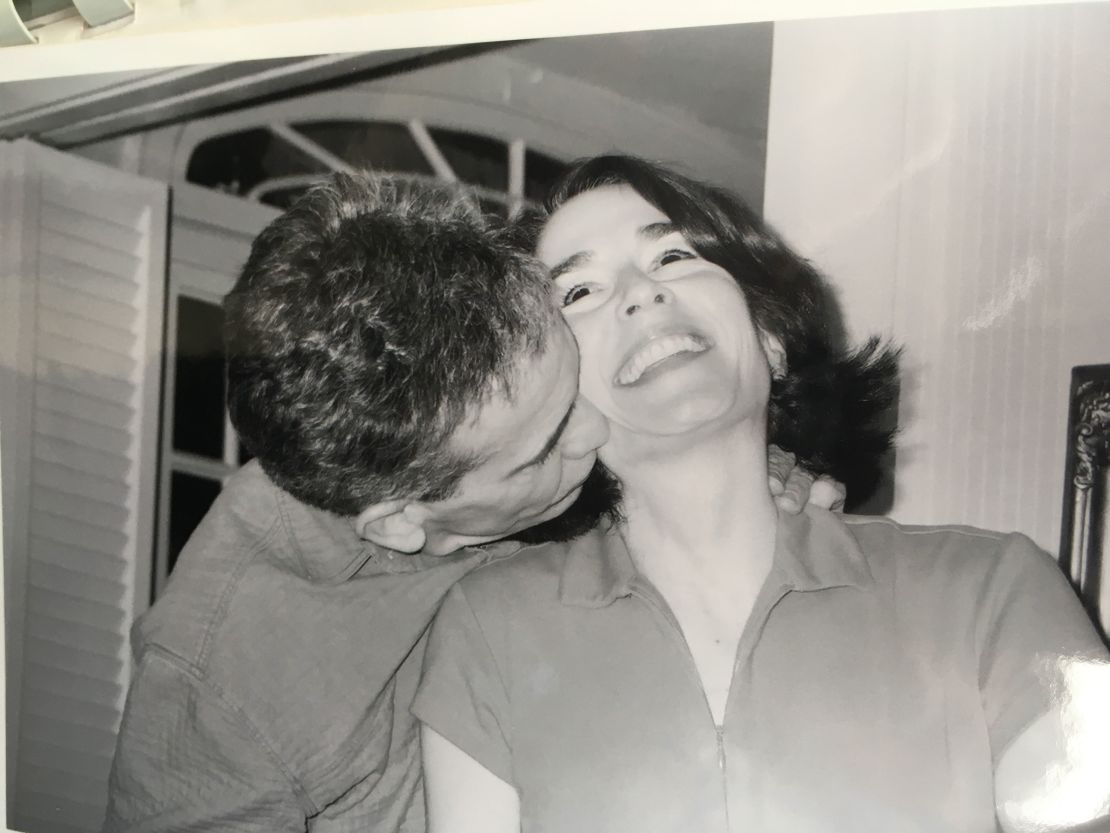
Her experiences living in San Francisco as the gay community grappled with the early AIDS outbreak helped inspire her to speak out as an advocate calling for biomedical research for those diseases. Though she couldn’t march in the streets, she accomplished much with her laptop, mostly from bed.
She met her husband, David Shepler, at a bridge tournament in 2002. She married him the following October, when she was 46.
He was her partner as she rallied hundreds of patients to form the Hailey-Hailey Disease Worldwide Support Group on Facebook, which offered 24/7 support to sufferers.
Imran Babar, the chief scientific officer at Rare Genomics Institute, told me in an email that Cindy had approached his organization with a proposal to test a generic drug in Hailey-Hailey patients. That work eventually led to a review article in the journal Integrative Biomedical Sciences entitled “Could Low-Dose Naltrexone be an Effective Treatment for Hailey-Hailey Disease?”
He noted that her outreach had prompted the institute to create a task force by which rare disease patients could engage experts to get hard-to-find scientific information on their conditions.
“Cindy was a gifted communicator, tireless advocate, brilliant connector and an inspiration to our organization,” Babar said.
Cindy was also a community ambassador for the Open Medicine Foundation, a nonprofit dedicated to researching neuro-immune diseases such as ME/CFS and Lyme disease.
She said that four or five years ago she began to see that she was continuing to get worse. She’d become almost completely housebound. She hadn’t eaten out at a restaurant for a year. What forays she did take outside her home were usually limited to visiting a doctor’s office or a hair salon every month or so.
“I have this wonderful husband,” she told me. “My one wish is that I could have had just a year of good health to enjoy with him.”
She didn’t want to go where her health was taking her. But if she had to, she was determined to meet the moment with courage.
“I’m not going to be one of the statistics of people who gave up,” she told me again and again.
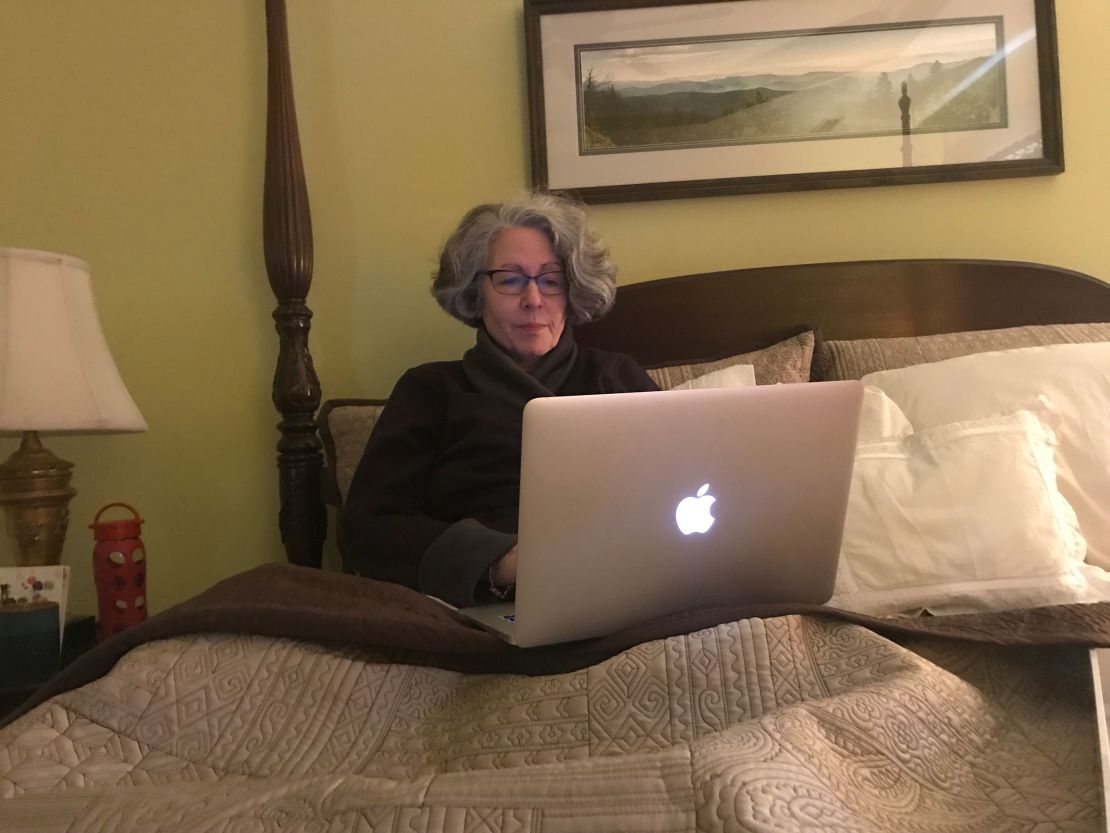
Assisted death is illegal in much of America
While she was constantly researching new drugs that might deliver her renewed quality of life, she was also secretly working on her backup plan for death.
One option she considered was to try and convince a doctor to go off of her life-sustaining thyroid medicine in a bid to qualify for hospice. That couldn’t come to fruition because doctors wouldn’t greenlight what would have still been a slow and painful death without the meds. And the most direct route, assisted death, was still blocked.
The American Medical Association opposes physician-assisted suicide, arguing that it can do more harm than good. The organization’s official ethical opinion states that physician-assisted suicide is “fundamentally incompatible with the physician’s role as healer, would be difficult or impossible to control and would pose serious societal risks.”
However, nine US states allow assistance with dying in some form.
Some form of assistance with dying is legal in Colorado, Hawaii, Maine, New Jersey, Oregon, Vermont, Washington and the District of Columbia. Six of those laws have been enacted in the last five years.
It is legal by court order in Montana and California.
Legislators in Cindy’s home state of Tennessee filed “right to die” bills as recently as 2017, but they never made it to a floor vote.
American death with dignity laws tend to require that an individual have less than six months left to live. That means that even if the Sheplers picked up and moved to a right-to-die state, Cindy wouldn’t have qualified to die because she didn’t fit the definition of “terminal” required by law.
She didn’t always feel that the wider world acknowledged the pain of her illnesses or accepted her choice to end her life. But one person never doubted her. David told me that if he had suffered all the diseases Cindy had, he would have been looking for a way out years ago.
“She would tell me that her skin felt like it was on fire,” David told me, noting days when she screamed in agony and asked whether there was a gun in the house.
He told me that before bed she would say “‘Why do I have to wake up in the morning?’ And in the morning it would be, ‘Why did I have to wake up?’ If she said it once, she said it a hundred times.”
Cindy saw hope abroad, however: Medical assistance in dying is fully or conditionally available in Belgium, Canada, Colombia, the Netherlands, Luxembourg and Switzerland.
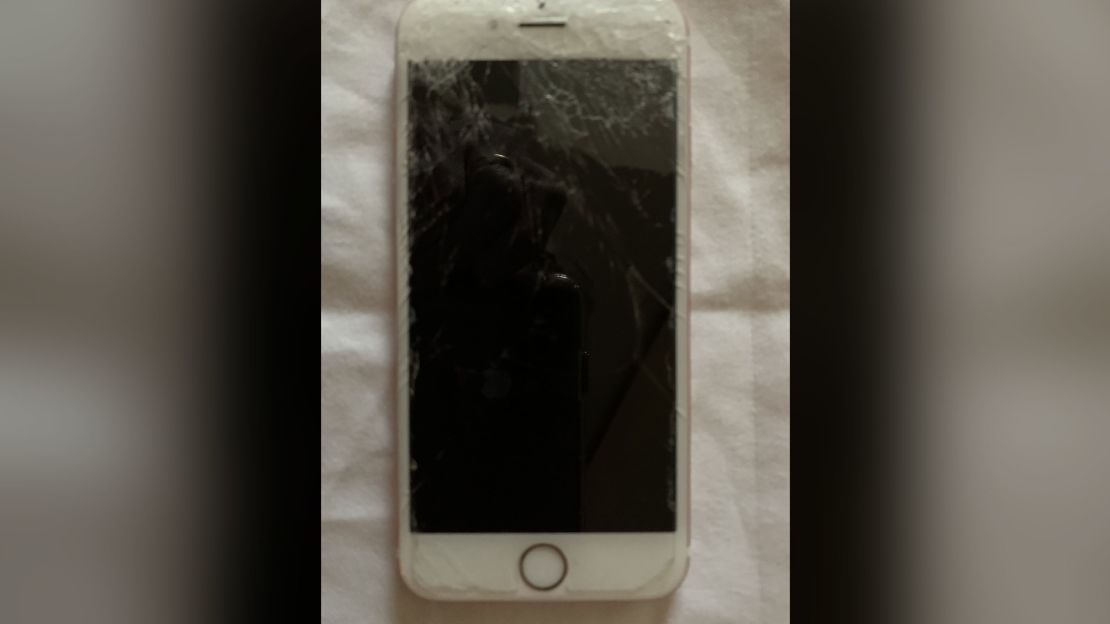
She believed assisted death ‘aligned’ with her spiritual compass
For her, the gentle, peaceful death she prayed for was simply unlawful in Tennessee.
In their bedroom, David and Cindy showed me a video, made by Anglican Archbishop Emeritus Desmond Tutu in 2016, in which the South African Nobel laureate threw his hefty moral weight behind a proposed assisted dying law in the United Kingdom.
“People who are terminally ill should have the option of dignified and compassionate assisted dying,” Tutu said. “I hope that when the time comes, I hope I am treated with compassion and allowed to pass on to the next phase of life’s journey in the manner of my choice.”
Statements like that, Cindy told me, helped her realize that assistance with dying “was something that aligned with my spiritual compass.”
Cindy applied for an assisted death with an organization called the Pegasos Swiss Association.
The moment when she found her application was approved was marked by “ecstatic gratitude and tears of the utmost joy,” she told me.
She would finally have relief. But she was wary of telling a soul. Some of her closest family members wouldn’t know until after she was gone.
She had hoped she could die at home
On the last night of my visit, I sat with her for an “exit interview.” I asked her about regrets. Her answers were both mundane and profound.
She said she regretted not having kids. Fearful that childbirth might further destroy her already fragile health, she had turned down suitors looking not just for a wife but for a mother of their children.
On a lighter note, she said she also regretted that she couldn’t see the end of “The Voice.” The winner of the 17th season of the NBC talent search show wouldn’t be named until the finale on December 17. Her appointment with death was scheduled for the day before.
During the semifinals the week before, I sat at the edge of Cindy and David’s bed, watching it with them.
One contestant, Kat Hammock, sang an old gospel tune:
When I die, Hallelujah, by and by,
I’ll fly away
I’ll fly away, oh glory.
Cindy rose up from the bed and danced. It was the most alive I’d seen her the whole week.
She told me she’d prepared a playlist for her final hour, which included One Republic’s “I Lived,” Maroon 5’s “Memories” and of course, “I’ll Fly Away.”
If Cindy hadn’t departed this world, I’d tell her the winner of “The Voice” was country singer Jake Hoot.
She chose to die her own way in Switzerland
They flew first class to Zurich. Cindy’s body was fragile and each extra luxury made the difference in whether she felt confident enough to make the trip at all.
Air travel tortured her body. The dry cabin air exacerbated her Sjogren’s. Her skin felt scorched from Hailey-Hailey. And even a 10-minute walk on the airport concourse set off post-exertional malaise, a painful feature of ME/CFS. She told me after she got there that she didn’t think she’d have been physically capable of making the trip back.
After arriving Friday in Zurich, Cindy and David traveled by train to Basel. Their time in Switzerland was short, by design.
A doctor came to the couple’s hotel room on Sunday to consult with Cindy and write the prescription for the drug that would end her life.
On her final morning, a driver picked up David and Cindy from their hotel at 9:30 a.m., David told me later.
At the clinic, he said they lay together on a bed, and a doctor set up an IV, with a long, thin tube running into Cindy’s hand. When she was ready, she told David she loved him. She thanked the doctor and the assistant who were in the room.
Then she turned the dial.
The drug rushed into her veins. Cindy said it felt cold. Then she fell asleep.
That day, David wrote me from Switzerland: “Cindy flew away at 11:11. She was brave and very thankful. I will love her always.”
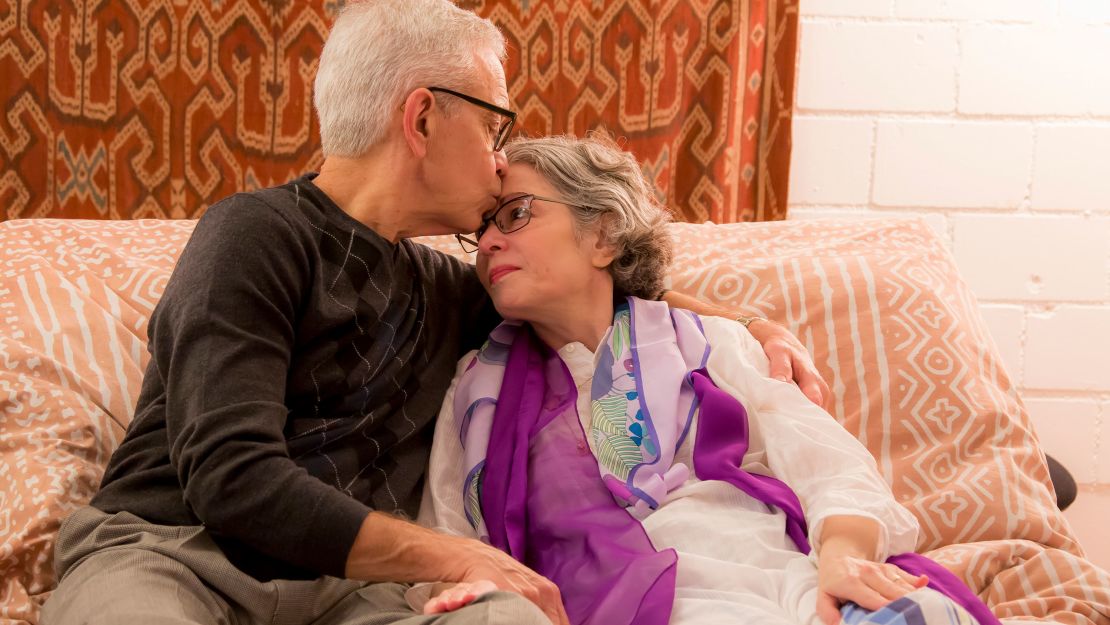
He also mentioned a story of an 86-year-old Arizona man, George Sanders, who had shot and killed his wife after she begged him to do it due to her complications from multiple sclerosis.
Sanders was charged with murder, pleaded down to manslaughter and was ultimately sentenced to two years of unsupervised probation.
Essentially, Cindy felt, the judge wasn’t faulting Saunders.
“Cindy sent the judge a thank you letter,” David wrote. “I found myself wondering sometimes if I would have the chutzpah to perform that ‘service’ for her if she begged.”
For months, I would wonder what I might do in a similar situation when I’m married.
She wants her memory to be a light to others
In those first few days after she died, I couldn’t cry. My whole body could only ache with grief. I felt heavy. Each morning I slept far longer than usual.
A friend once told me that when someone we know dies, we’re actually mourning the death of the part of ourselves that only they knew.
I reread notes from my interviews with Cindy over and over. On a piece of paper, I scrawled out a bulleted list of her advice to me so I could hang it on my wall and see it every day.
In our last conversation, she told me she was reading Psalm 23 from the Bible, about preparing to walk into the valley of the shadow of death. I thanked her for propping me up during some of my darkest times.
“You gave back to me equally,” she said. “I wanted to help you dip into your potential in ways you may not have been able to see yet.”
She also revised an answer from her interview days before, about her decision to raise children: “I know that if I could have had a son like you, then I would have.”
She also had a message to the world in that last phone call.
“Don’t you dare let anybody say I gave up hope,” she said. “Because I didn’t. There’s really just nothing that can be done at this point.”
Two days after she died, I learned that a story I poured my soul into writing had ranked as the CNN story with the highest reader engagement of 2019, and the third highest among all our competitors.
Congratulations poured in from my boss, my boss’ boss and my boss’ boss’ boss. It wasn’t the Pulitzer Prize that Cindy had predicted, but it felt close.
It was only then that I choked up. For the first time since Cindy died, tears fell from my eyes because I realized I couldn’t tell someone who would have been the most joyous about it.



